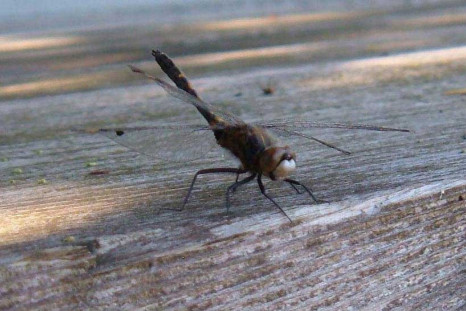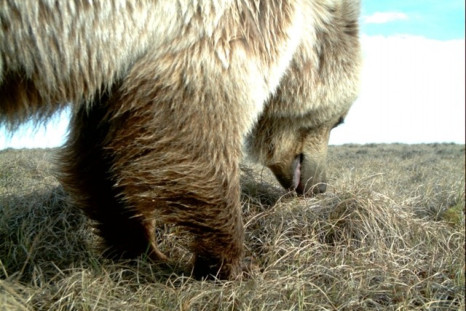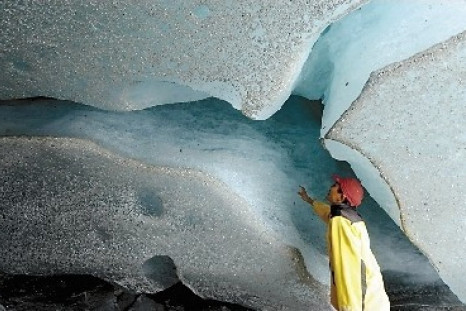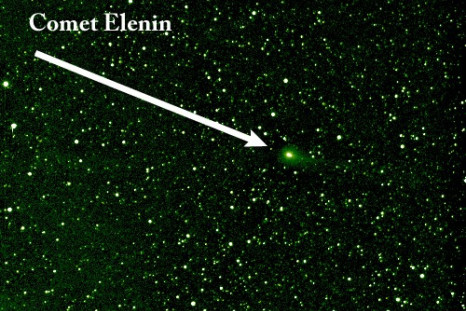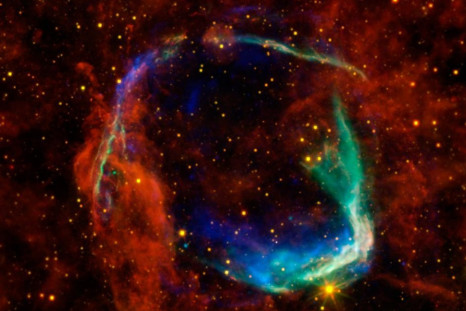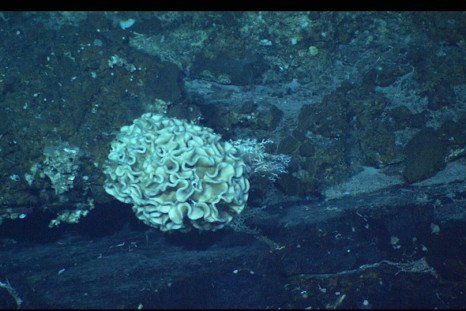U.S. Regulators Approved Near-Record Drugs in 2011
U.S. federal drug regulators approved 35 drugs in fiscal 2011, a near decade record only beat in 2009, according to a report released Thursday.
Quebec Settlers Accelerated Human Evolution, Researchers Find
Settlers to the New World had certain advantages -choice land, abundant resources, and according to new research, an evolutionary advantage that spread the pioneer's genes more and further than later immigrants.
Opposite Conclusions on Chantix Safety Between FDA and Researchers
Researchers called Chantix, the smoking-cessation drug linked to psychotic and suicidal side effects, unsafe for patients Wednesday; just days after federal health officials in October deemed the drug safe.
Painkiller Overdose Deaths Triple in Last Decade
Heroin and cocaine can be deadly, but they pale in comparison to prescription painkillers that have reached epidemic levels, U.S. researchers reported Tuesday.
E-waste Poisons African Community, Research Shows
Researchers found dangerous levels of metals - iron, magnesium, copper, zinc, cadmium, chromium, nickel and lead - across Accra removed from the Agbogbloshie scrap yard where residents burn away plastic to extract metals.
The Addicted Brain, New Clues from Study
Millions of people suffer from addictions worldwide - whether from drugs, alcohol, tobacco, gambling, theft or any number of vices and the biology behind seeking endless gratification that damages your life has been of interest to scientists for years.
'Freshman 15': Weight Gain a Myth Researchers Say
The freshmen 15 - the widely reported 15 pounds that students gain in their first college year - may be just a myth, according to a nationwide survey.
Commutes Can Lower Perceptions of Health, Survey
Your daily commute may do more than just get you to work: it also may be bad for your health, according to research published Sunday.
Scared to Death, Even Without Threat of Being Eaten
In the world of eat or be eaten, one tactic surprisingly works for some predators: Scare their prey to death.
NASA Launches Satellite to Measure Global Climate
NASA's newest Earth-observing satellite soared into space Friday aboard a Delta II rocket after liftoff at 5:48 a.m. EDT from Space Launch Complex 2 at Vandenberg Air Force Base in California
World's Population to Reach 7 Billion by Monday
By Monday, a mother will give birth to the seven billionth human living on Earth, experts predict.
CDC: Unprotected Sex in 25 Percent of Gay Urban Men
A quarter of gay urban men have unprotected sex with casual partners, despite millions of dollars spent on HIV/ AIDS prevention strategies, according to new research published Thursday.
Regenerated Lungs from Stem Cells Bring Possible Therapy
In a first, researchers used regenerative stem cells to repair fragile damaged lungs in mice previously infected by a nasty strain of H1N1 influenza. The results could lead to new therapies for asthma, chronic bronchitis and emphysema in humans.
Live to 100? $10 Million Contest Seeks to Understand Why
A new twist on the X Prize, a $10 million carrot dangled in front of potential innovators, came Wednesday when the competition ventured into the highly competitive world of genomics.
Red-Nosed Reindeer Keep Cool, Researchers Find
Just in time for Christmas, researchers found the reason why Rudolf's nose was so bright red that fateful eve. Poor guy was desperate to cool down.
Curiosity + Diligence as Good as Plain Intelligence, Researchers Say
Curiosity and diligence are as important as intelligence for a student's success, according to research released Wednesday.
How Woodpeckers Avoid Brain Injuries, Research Shows
The leading cause of death in adult humans, head injuries, hardly gives a headache to birds that rapid-fire drill their beaks into hapless trees.
A new study entitled Why Do Woodpeckers Resist Head Impact Injury: A Biomechanical Investigation from a team of Chinese scientists sought to answer that question.
Development Threatens Arctic Birds, Conservationists Say
Scientists caught predators in the act of raiding ground nests in the Arctic, graphically showing in a series of photographs released Wednesday how ground-nesting birds are threatened.
Glaciers Melting Across Southwest China
The large ice masses in southwest China are also decreasing, coinciding with warming temperatures, according to research published Wednesday.
Google-funded Research Maps Geothermal Energy in U.S.
Research funded by Google, the power-hungry search engine, concludes that America's geothermal resources could provide 10 times the current power from existing coal plants, according to a report released Wednesday.
Former Doomsday Comet Fizzled Out
The comet discovered in December became popularized as a doomsday comet since astronomers expected it to fly close to the Earth and the comet resembled ancient apocalyptic prophesies.
New App for Amateur Astronomers, NASA Offers
NASA continued to roll out apps for astronomy enthusiasts to view pictures of far off worlds, get updates on missions and receive updates on the International Space Station.
CDC: Malaria Warning in Greece
The Centers for Disease Control and Prevention Tuesday issued a warning at the heels of 20 new cases of malaria from Greeks who had no travel history to malaria-infested areas.
Generation X: Happy and Well-Adjusted, Survey Says
Most Gen Xers, the generation sandwiched between baby boomers and Internet-era adults, live active, balanced and happy lives, according to a long-term research from the University of Michigan released Tuesday.
NASA Explains 2,000-Year-Old Mystery of Exploding Star
Chinese astronomers looked up in the sky back in 185 A.D. and found a mysterious guest star that stayed around for eight months then disappeared. The sighting was the first documented supernova confirmed by scientists in the 1960s.
Arctic Sea Ice Broke up 1,400 Years Ago
Arctic ice shelves may disappear in the future, although the ice masses already broke up 1,400 years ago and refroze 600 years later, according to new research.
Anti-parasite Drug Side Effect: Fighting Skin Cancer
A drug used to fight off parasites may someday be used to protect against skin cancer, according to new research.
Giant Single-Celled Creatures Lurk Deep in the Ocean
Giant single-celled animals live nearly seven miles below the ocean surface, according to scientists at Scripps Institution of Oceanography at UC San Diego.
CDC Examines Suicidal Thoughts State by State
Over eight million American adults had suicidal thoughts between 2008 and 2009, a period during which an estimated one million adults attempted suicide, according to a study released Thursday.
Antidepression Med Use Skyrocketed over 20 Years
One in ten Americans takes antidepressants, according to a federal study published Wednesday, a rate that has skyrocketed in the last two decades.






